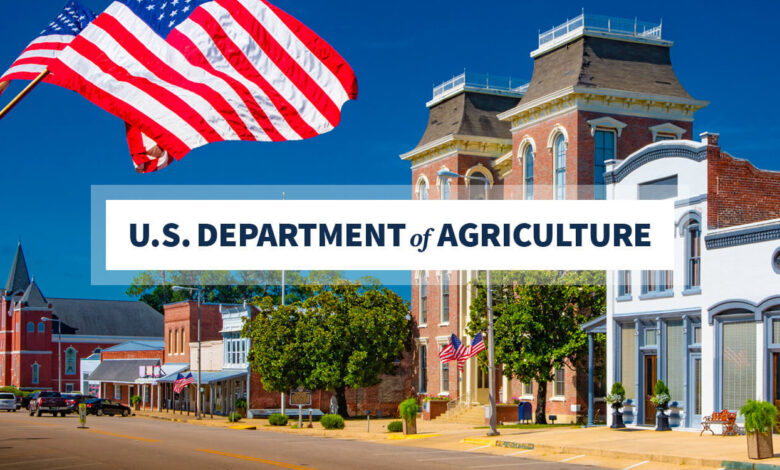Biden-Harris Administration Connects People and Businesses in Rural Areas to Reliable High-Speed Internet in 18 States

USDA Secretary Tom Vilsack today announced more than $313 million in funding to connect rural residents, farmers and business owners in 18 states to reliable high-speed internet.
BRAINERD, Minn., Dec. 18, 2024 – U.S. Department of Agriculture (USDA) Secretary Tom Vilsack today announced more than $313 million in funding to connect rural residents, farmers and business owners in 18 states to reliable high-speed internet.
Projects are being financed by the fifth round of the ReConnect Program and are a central part of President Biden’s Investing in America agenda to rebuild the economy.
“Keeping the people of rural America connected with good, reliable high-speed internet brings new and innovative ideas to the rest of our country and creates good-paying jobs,” Secretary Vilsack said. “That’s why USDA’s ReConnect Program is an important part of our partnership with rural communities. Through these investments, we are connecting the most rural and remote communities to a global marketplace and bringing new opportunities within reach.”
USDA Rural Utilities Service Administrator Andy Berke made today’s announcement during a visit to Consolidated Telephone Company in Brainerd, Minnesota, which is receiving a $5,510,933 million loan and a $5,510,933 grant to connect 2,831 people, 67 businesses and 78 farms in Crow Wing and Morrison counties.
The ReConnect Program is specifically designed to fund the most difficult high-speed internet projects in the nation, which are in the most rural, remote and unserved communities.
Many residents and businesses in rural areas would not have high-speed internet service without the ReConnect Program. The program is a key part of the Administration’s Internet for All initiative to connect everyone in America to high-speed internet by 2030.
Since the beginning of the Biden-Harris Administration, the Department has invested approximately $4.4 billion for 360 ReConnect awards that will bring high-speed internet access to more than 680,000 people in the most rural and remote areas of America. More than $2.2 billion of this funding, which will benefit an estimated 341,000 people, was made available through the Bipartisan Infrastructure Law (BIL).
Today’s investments will connect people to high-speed internet in Alabama, Alaska, Arizona, Arkansas, California, Georgia, Idaho, Michigan, Minnesota, Missouri, Montana, Nevada, New Mexico, Ohio, Oregon, Texas, Washington and Wisconsin.
For example:
- In Michigan, Waldron Communication Co. is receiving a $3 million loan and a $3 million grant to provide high-speed internet that will connect 599 people, 18 businesses and 32 farms in Hillsdale and Lenawee counties.
- In Arizona, CoxCom LLC is receiving a $14.7 million grant to connect 6,579 people, 88 businesses, two farms and nine educational facilities in Cochise, Pima and Pinal counties.
- In Washington, the Confederated Tribes of the Colville Reservation is receiving a $19.1 million grant to connect 165 people, six businesses and 20 farms across the Colville Reservation in Okanogan County.
Today’s announcement also includes a Broadband Technical Assistance pilot project in Nevada. Valley Electric Association Inc. is receiving a $542,281 Cooperative Agreement to promote the deployment of high-speed fiber networks to the rural areas of Clark, Esmerelda, Lyon, Mineral and Nye counties.
The project will use innovative partnerships with local internet service providers and energy providers to promote the development of mid-mile and last-mile fiber in these remote areas of Nevada. The project will provide solutions for the delivery of products and services that include design, engineering, procurement, permitting, construction, operations, maintenance and repair and regulatory compliance.
The Broadband Technical Assistance (BTA) program supports technical assistance projects such as conducting feasibility studies, completing network designs and developing broadband financial assistance applications. Funding is also available to help organizations access federal resources, and to conduct data collection and reporting.
Since the launch of the BTA program in April 2023, the Department has provided more than $16.29 million to support 42 technical assistance projects across 24 states.
A full list of projects from today’s announcement is available online.
Under the Biden-Harris Administration, USDA Rural Development provides loans and grants to help expand economic opportunities, create jobs and improve the quality of life for millions of Americans in rural areas. This assistance supports infrastructure improvements; business development; housing; community facilities such as schools, public safety and healthcare; and high-speed internet access in rural, Tribal and high-poverty areas. Visit the Rural Data Gateway to learn how and where these investments are impacting rural America. For more information, visit www.rd.usda.gov.
USDA touches the lives of all Americans each day in so many positive ways. Under the Biden-Harris Administration, USDA is transforming America’s food system with a greater focus on more resilient local and regional food production, fairer markets for all producers, ensuring access to safe, healthy and nutritious food in all communities, building new markets and streams of income for farmers and producers using climate-smart food and forestry practices, making historic investments in infrastructure and clean energy capabilities in rural America, and committing to equity across the Department by removing systemic barriers and building a workforce more representative of America. To learn more, visit www.usda.gov.
To subscribe to USDA Rural Development updates, visit GovDelivery subscriber page.
#
USDA is an equal opportunity provider, employer, and lender.



